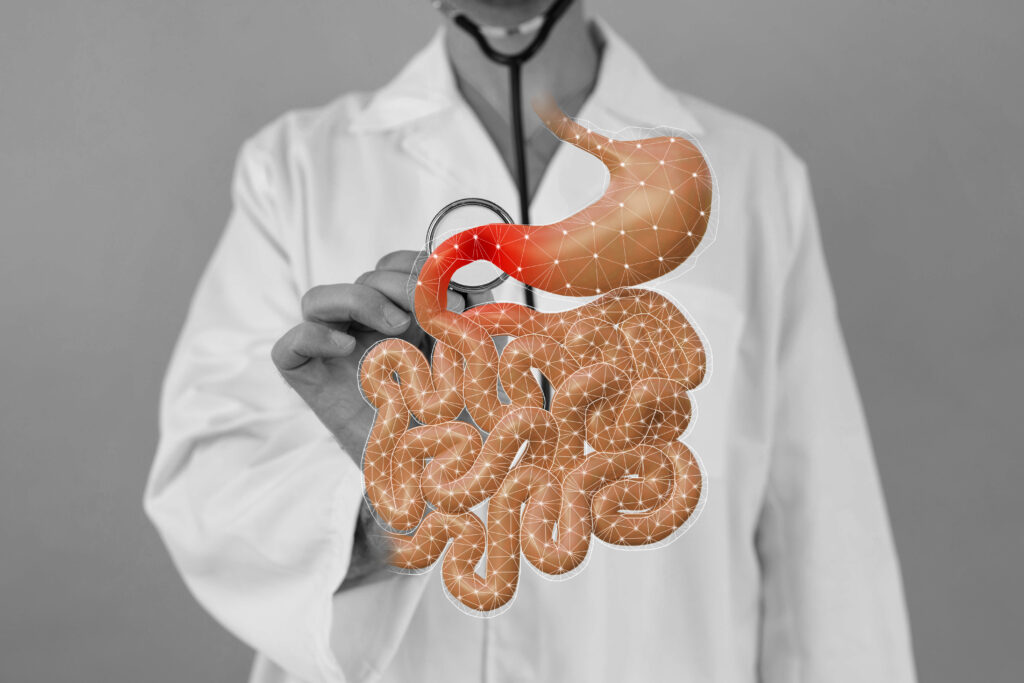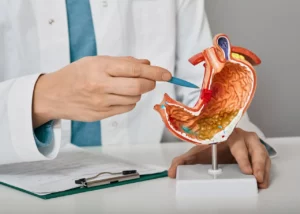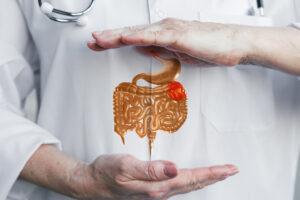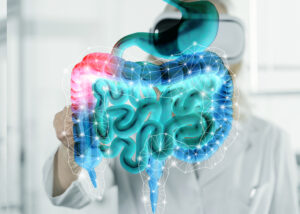Gastroscopy
At our clinic, we focus on the broad spectrum of tests and treatments in the field of gastroscopy. Gastroscopy is an important test, which enables us to examine the upper digestive tract in a precise and dynamic manner. Using an illuminating tube and a gastroscope camera, we can identify and diagnose a wide variety of medical problems such as inflammation, cellulite, cancer and more. Dr. Bromberg uses advanced technology and high proficiency to provide you with the most accurate and professional examination. Emphasizing people and personalized care, we offer you a distinctive, high-quality medical experience.

Questions and Answers on Gastroscopy
What is a gastroscopy procedure, and why is it important?
An esophagogastroduodenoscopy, also known by the medical shorthand EGD, is called a “minimally-invasive upper endoscopy” and is used to examine the mucosa of the esophagus (food pipe), stomach and duodenum (the upper segment of the small intestine). To conduct this procedure, your specialist will use a thin and flexible tube called an endoscope, which has a tiny camera with its own lens and light source. They will view the images on a video screen, which will enable them to optimally analyze the data obtained.
When should you have a gastroscopy and what are the key signs that this test should be done?
An upper GI endoscopy procedure can help your doctor find the cause of unexplained symptoms, such as:
- Long-term heartburn
- Persistent nausea and vomiting
- Persistent abdominal pain
- Difficulties swallowing (dysphagia)
- Chest pains that are not caused by heart-related issues
- Esophageal stricture
- Unexplained weight loss
- Iron deficiency anemia
- Chronic diarrhea
Upper GI endoscopy can be used to identify various diseases and conditions:
- Barrett's esophagus
- Stomach inflammation
- Helicobacter infection
How long will the test take?
A gastroscopy procedure takes about 15 minutes, and the entire process, from arrival at the clinic to discharge to your home, will last between two and three hours. After the test, you will remain under follow-up for about one hour.
How do you prepare for a gastroscopy?
You must fast for 8 hours before a gastroscopy. You may only drink water up to 4 hours before the procedure. Anticoagulant treatment must be stopped for the purpose of this test. The duration of time it must be stopped depends on the type of anticoagulant. The doctor will specify the exact time points for stopping.
What results can you expect following a gastroscopy procedure?
A gastroenterologist can detect stomach or duodenum ulcers, inflammations in the stomach, esophagus or duodenum. During the test, the doctor may take a biopsy and send it to a pathology laboratory even if the mucosa appears normal, in order to rule out coeliac disease or Helicobacter pilori infection with any change in the mucosa. The doctor will send you the results within 2-4 weeks.
What are the signs that you should see a doctor after a gastroscopy is done?
You should see a gastroenterologist after the procedure and receiving the pathology results. It is important to consult with a gastroenterologist if symptoms persist.
Dr. Laura Bromberg is a gastroenterology specialist with many years of experience in the field. Thanks to her vast professional knowledge, she offers advanced and high-quality medical services for each patient. Dr. Bromberg recognizes the significance of focusing on each patient, and so she focuses on personal and personalized treatment of each case. Dr. Bromberg invites you to set an appointment to receive professional consultation and high-quality care regarding any issue pertaining to gastroenterology. We will be delighted to see you at her clinic and to help you protect your health and feel better.



